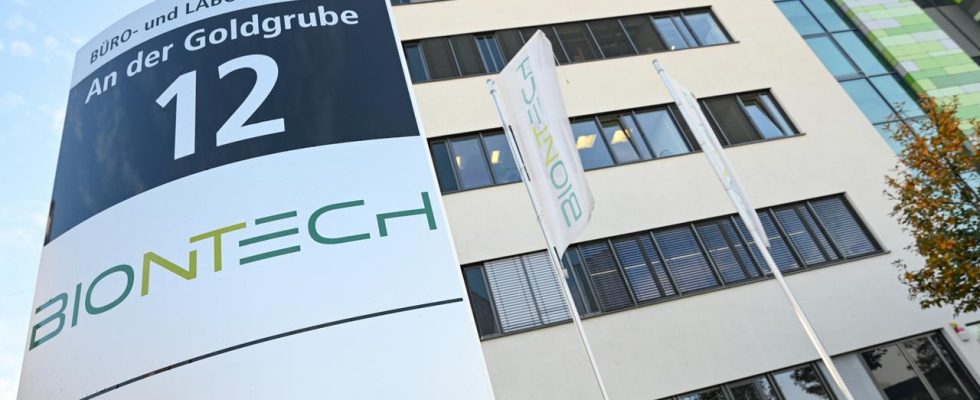BioNTech wants to bring its first cancer drug onto the market in 2026. To ensure that the development from Covid-19 vaccines to cancer drugs is successful, BioNTech is spending more on research and development.
The Mainz-based biotechnology company BioNTech wants to accelerate its oncological research by spending billions and bring its first cancer drug onto the market in 2026. Numerous clinical advances have been made recently, said company boss Ugur Sahin today when presenting the financial figures for the full year 2023. There are a number of active ingredient candidates in mid and late clinical development.
“We believe that we have several chances to achieve our goal. Our licensed assets are now contributing to value creation,” said Medical Director Özlem Türeci. By the end of 2024, BioNTech wants to have ten or more potentially approval-relevant studies in the pipeline, she confirmed.
More money for research and development
In order to move away from the focus on Covid-19 vaccines and towards cancer drugs, BioNTech is increasing its spending on research and development. In 2023, the company spent around 1.8 billion euros on this. The lion’s share of 1.47 billion went into the development of oncological preparations and drugs against infectious diseases.
Only 313 million euros were spent on Covid-19 research in 2023. In 2022, total research spending was 1.5 billion, in 2024 it is now expected to be between 2.4 billion and 2.6 billion euros.
Slump in sales due to vaccination fatigue
The change is urgently needed because BioNTech already felt the drop in demand for corona vaccines last year. Sales fell to 3.8 billion euros from 17.3 billion in 2022, as the Mainz-based company announced today. The net profit shrank to a good 930 million euros from 9.4 billion previously.
This development had already been apparent over the entire past year, because with the end of the pandemic, demand for Covid vaccines fell significantly. Vaccine fatigue spread among many people, despite the boosters adapted to new variants. For this year, the company specified its forecast and expects sales of 2.5 to 3.1 billion euros – depending on Covid vaccine demand and prices as well as risks from further write-downs of inventories at Pfizer.
Falling income for municipalities
The decline in sales and profits at BioNTech is leaving deep marks on the budgets of cities with a BioNTech location. In Rhineland-Palatinate these are the state capital Mainz with the company headquarters and Idar-Oberstein. It was only on Tuesday that the Rhineland-Palatinate State Statistical Office published fresh figures on municipal tax revenue for 2023. According to this, the municipalities and cities in the country collected around 5.9 billion euros in taxes last year, around 13 percent less than in 2022, when revenue also grew significantly.
According to statisticians, the decline can be explained almost exclusively by a 29 percent lower net trade tax revenue. As in previous years, the figures from Mainz had a strong influence on the overall development of trade tax revenue. Here, trade tax revenue fell by almost 1.04 billion euros or 83 percent to around 217 million euros compared to 2022. The picture in Idar-Oberstein is similar: Here, trade tax revenue fell by 89 million euros or 58 percent.
Personnel changes
BioNTech also announced that it would bring a second woman onto the board alongside company co-founder Türeci – the wife of CEO Ugur Sahin. Annemarie Hanekamp, who comes from the Swiss pharmaceutical company Novartis, is to take on the role of Chief Commercial Officer on the board in July. She succeeds Sean Marett, who is retiring.

